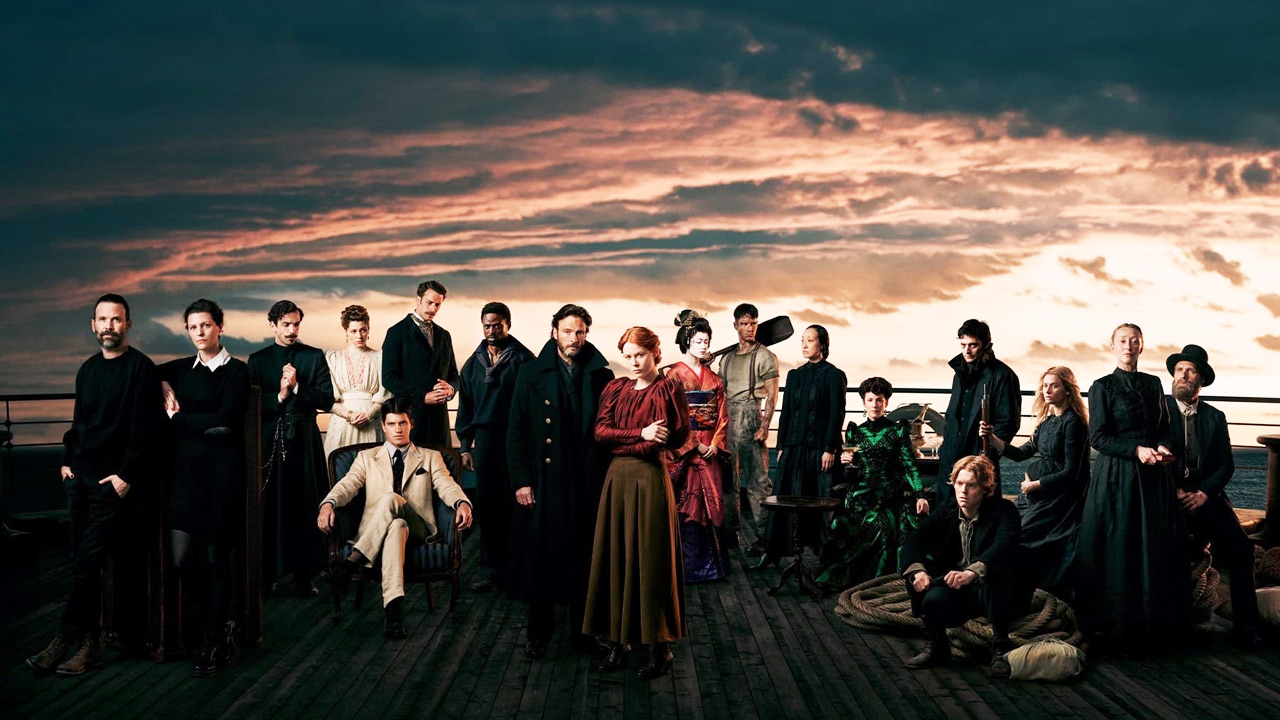1899 sets up great mystery, but can it deliver a mind-expanding conclusion?

We’re all drowning in content—so it’s time to highlight the best. In her column, published every Friday, critic Clarisse Loughrey recommends a new show to watch. This week, it’s Netflix’s ghost ship mystery series 1899.
I thought I’d given up on the “puzzle box” genre of television. A long-form mystery requires a level of mutual respect—the audience invests their time and patience into a show whose answers only come to light at the very end, while the creators promise not to treat them as gullible, unobservant, or easily tricked. I’d upheld my end of the bargain. I could rarely say the same about the other side. There are only so many times I can put up with being told “it’s all dream”, “they’re all dead” or “it’s something to do with time travel but shush now, don’t ask how it all works.”
That means I never watched Dark, the Netflix miniature sensation from German creators Jantje Friese and Baran bo Odar, which follows four estranged families whose fates become intertwined after a child’s disappearance. But I was willing to give the “puzzle box” another shot when Netflix broke the news that Friese and Odar had something new hidden up their sleeves: 1899, which gives the genre a fully Gothic makeover by cloistering a disparate international set of characters on a steamship bound for America, its iron walls concealing many strange and sinister secrets.
The closest thing this show has to a protagonist is Maura Franklin (Emily Beecham), a neurologist who boards the Kerberos clutching a note from her brother. It states, ominously, that “I found out what our father did.” Somewhere in the Atlantic, the Kerberos detects a beacon from its sister ship, Prometheus—the same vessel that vanished without a trace four months ago, taking Maura’s brother with it.
The repeated refrain of 1899, echoed by many characters across many episodes, is simply: “this can’t be real”. And you can hardly blame these poor souls for losing their grip on the material. Each of them, it seems, is haunted by vivid dreams (or are they hallucinations, memories, or simulations?) of the worst moment of their lives. The ship’s captain Captain Eyk (Dark’s Andreas Pietschmann) relives the fire that killed his family. Others are haunted by heinous crimes and near-death experiences. There’s also a turquoise beetle that seems to have crawled right out of an Edgar Allan Poe story. It’s wielded by a nameless man (Aneurin Barnard) in a giant collared overcoat, with perpetually wet hair and eyes so piercing you worry they’ll carve a hole in the ship’s hull. And don’t get me started on all the pyramids and triangles in play.
What’s particularly ingenious about the way Friese and Odar have mapped out their series is that it’s never entirely clear what is and isn’t a vital clue. In the first-class dining room, early on, there’s a moment where everyone seems—almost robotically—to lift their cups and take a sip at the very same time. Is this an indication that their free will isn’t really their own? Or is it simply a depiction of the strict rituals of upper-class society?
It’s a busy ship, yet everyone on the Kerberos appears to be totally isolated. They’re divided not only by class (1899’s scope stretches from its most opulent quarters down to the engine room) but nationality. No-one speaks the same language, meaning the passengers are far more likely to confess their dark impulses out loud, knowing their shame will be kept safe. The performances are all excellent, particularly Beecham, who carries an intense haunted quality with her, and Isabella Wei, whose Chinese sex worker Ling Yi bears the rawest and most palpable guilt of the show.

So, I’m invested. But with that comes the very real fear that I’ll be betrayed once more. Netflix provided critics with six of 1899’s eight episodes. I don’t yet know the solution to its mystery. And there are a handful of signs that have led me to think 1899 may be trying too hard to hit a certain mainstream sensibility to deliver the mind-expanding conclusion I’m so desperately hoping for.
Chief among these is the repeated use of on-the-nose, performatively cool music tracks tacked onto the end of each episode (a habit carried over from Dark)—Deep Purple’s Child in Time, Blue Oyster Cult’s (Don’t Fear) The Reaper, and the vaguely grating cover of Jefferson Airplane’s White Rabbit that serves as the show’s theme. I’m also concerned by how oppressively, at times indecipherably dark 1899 is (and I mean that in the literal sense), since it seems to be de rigueur for television these days.
It may also be a way to cover for the fact this is the first Netflix show shot entirely in a virtual studio, using the same LED-Volume technology that Disney has increasingly relied on since The Mandalorian. We’ll see. But, please, don’t let me down 1899—I have too much riding on this.
















